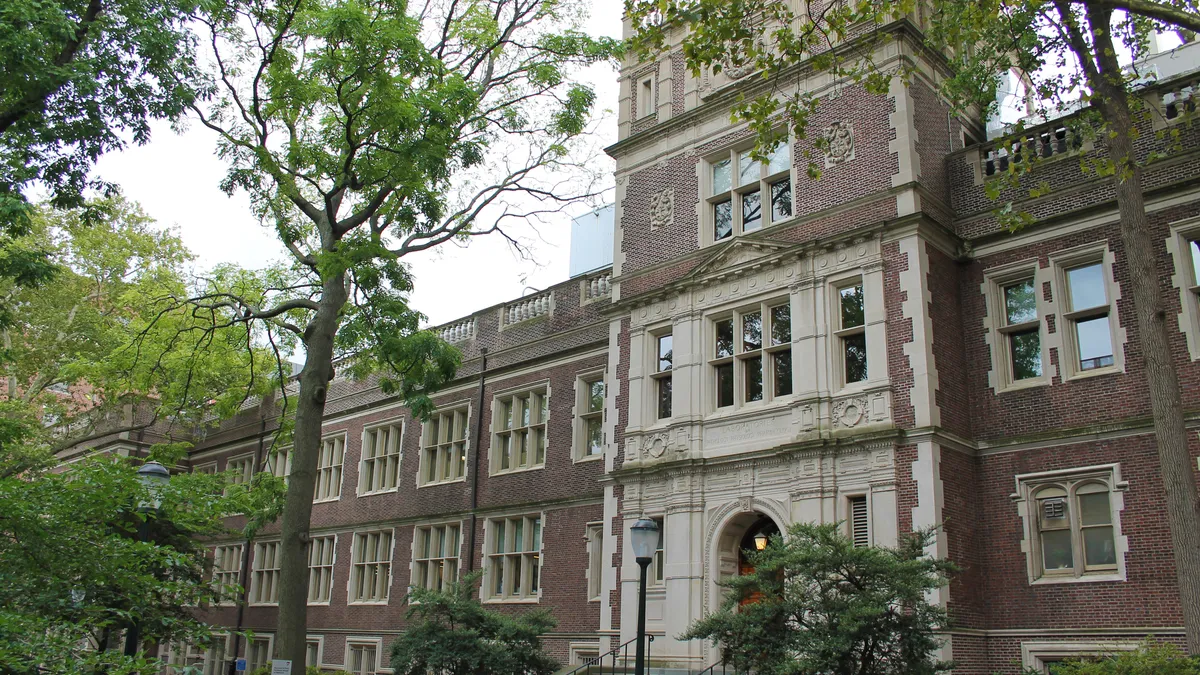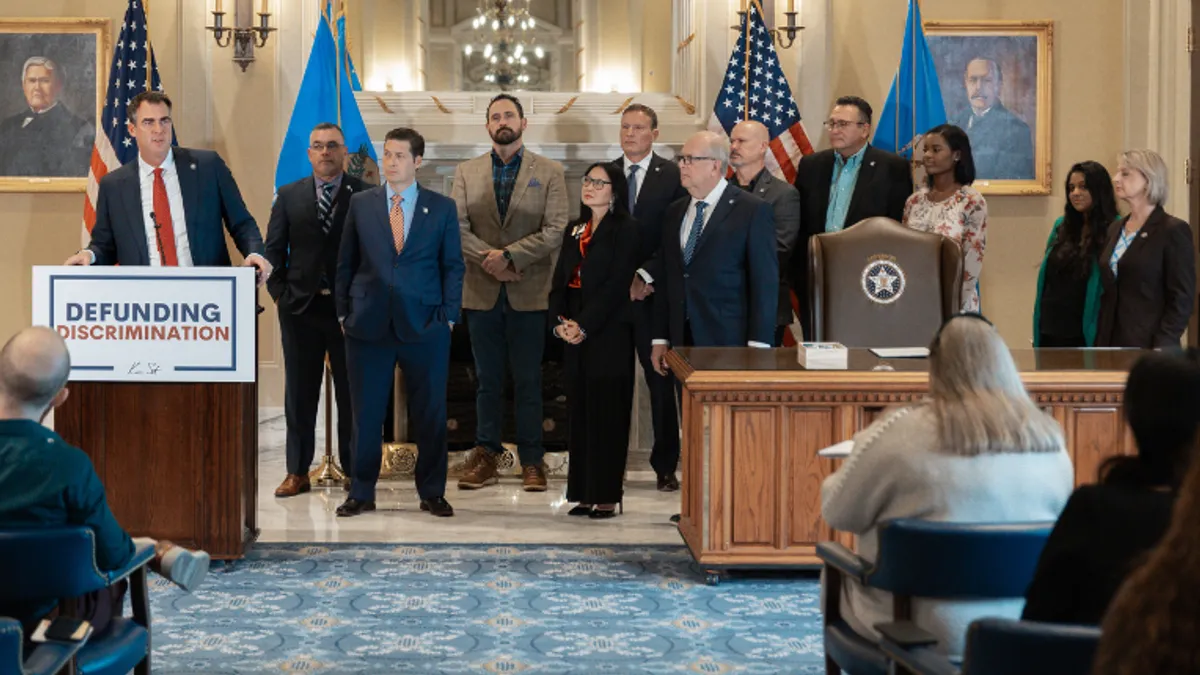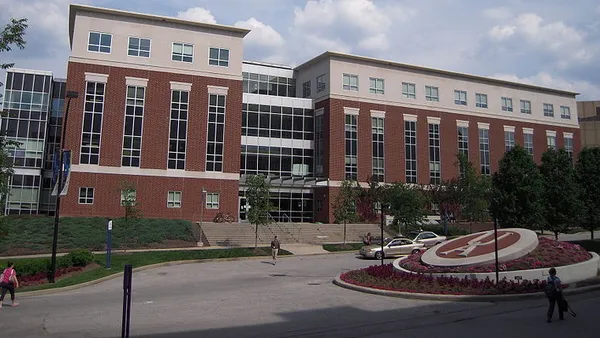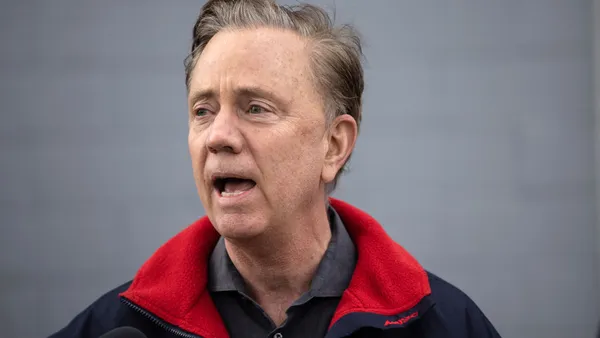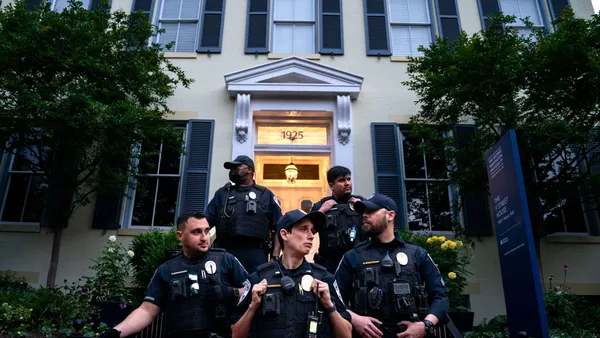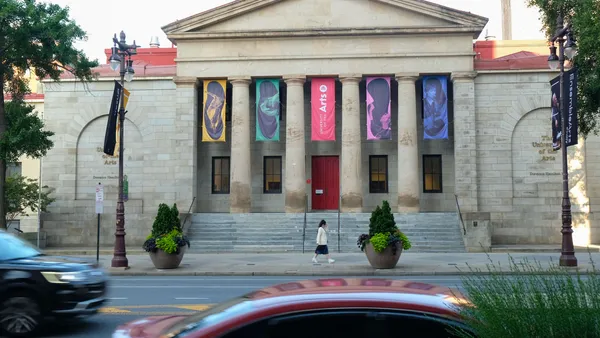Dive Brief:
-
Billionaire philanthropist MacKenzie Scott gave more than $800 million to colleges in donations announced this week, according to one count, with a focus on small institutions and those that serve large shares of minority and low-income students.
-
The gifts are unusual beyond their size, higher education experts said. Scott doesn't appear to have a personal connection to the colleges and has said the gifts had no strings attached.
-
The donations come at a time when advancement teams are focusing more on raising money for student financial aid and amassing unrestricted funds.
Dive Insight:
The gifts were part of a $4.2 billion giving spree to more than 380 organizations, Scott wrote in a blog post on Medium. Her team researched organizations that it believed could be given the money "with full trust and no strings attached," she wrote, adding that gift recipients were given the entire amounts upfront.
Her approach was "radically unconventional," Jeff Martin, senior director at consultancy EAB, wrote in an emailed statement.
"She gave without restrictions at a time when most major donors tie tight strings to how their contributions will be used," Martin wrote. "She gave without being cultivated or solicited, bucking the status quo of fundraisers investing years' worth of time and resources in engaging donors before making an ask."
For many colleges, the gifts were the largest they'd ever received.
Morgan State University, a historically Black college in Maryland, received $40 million, most of which it's using to double its endowment. Another $2 million will go to various initiatives, including student aid and providing support to its community health and policy school.
A Washington Post analysis estimates of the more than $800 million Scott donated to colleges, around $560 million went to HBCUs.
"I hope this is a turning point for donors to invest significantly in a plethora of HBCUs," Morgan State President David Wilson said.
Indian River State College, in Florida, likewise announced this week that it received $45 million. The community college will partly use it to support access for low-income and historically underrepresented students, according to a local media report.
Community colleges usually get smaller donations than four-year schools because they don't have large numbers of wealthy alumni. "For a community college, the infusion of several million dollars right here, right now — especially if it is unrestricted, or a portion of it is unrestricted — that's a transformative impact," said Kestrel Linder, co-founder and CEO of GiveCampus, an online fundraising platform.
Major donors typically give to elite schools with which they have a personal connection, experts said. Gifts are also usually for specific purposes.
Michael Bloomberg, for instance, gave $1.8 billion in 2018 to his alma mater Johns Hopkins University, in Maryland, for financial aid. And the University of California, San Francisco, received a $500 million commitment the same year from the Helen Diller Family Foundation to help build a hospital.
Scott's gifts come during a tumultuous fundraising year. In a survey this spring of more than 100 advancement officials, a little more than half said they were preparing for a decline in the number and value of donations in the 2021 fiscal year.
Fundraising priorities also "shifted significantly" after the pandemic broke out, according to a separate survey of around 400 advancement professionals, in June. They reported that they're deemphasizing support for capital projects and their endowments in favor of raising money for financial aid and virtual instruction.







